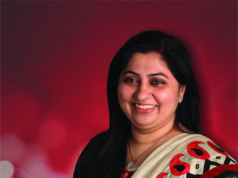
 — Thomas Hornfeldt, Senior Vice President – Special Steel Sales, and Tuomo Saramaa, Head – Asia Pacific and Middle East, Ruukki
— Thomas Hornfeldt, Senior Vice President – Special Steel Sales, and Tuomo Saramaa, Head – Asia Pacific and Middle East, Ruukki
Ruukki provides lifecycle and energy-efficient steel structure solutions for commercial, office and industrial construction and port and transport infrastructure construction. The €2.8-billion company operates in some 30 countries and employs around 9,000 people. Thomas Hornfeldt and Tuomo Saramaa spoke to Sandeep Menezes about the company’s long-term plans in India.
What is the current market size of speciality steels in India? What kind of growth do you foresee?
Thomas Hornfeldt: It’s hard to point out the exact growth because 2012 was an exceptional year but in spite of this we expect quite a growth, going forward. I think, we will see the total demand for steel growing in India. Across India, we see industries and infrastructure growing; the population is being urbanised. Also, the proportion of speciality steel in proportion to total steel will increase.
As more and more people want modern designs, instead of the age-old way of doing things, the usage of speciality steels will increase.
The construction equipment market, which is one of the main demand drivers for speciality steel, witnessed a flat market in 2012. How did this impact the speciality steel segment?
Thomas Hornfeldt: Of course, we have also seen demand going down and sales from India being impacted. But we are here for the long run. We are very clear in our strategy for India. We want to stay here and be partners to our customers. We have opened our own office here in 2012 and this is not going to change. One bad year is not going to change anything.
Do you have any policy suggestions that will ensure higher growth of speciality steel?
Tuomo Saramaa: We hope to see better decision-making capability from the government side to put forward infrastructure projects and start realising them.
One big aspect of our segment is the mining industry. We hope that the situation will clear and the environment for mining in India will become better.
These two things are on our wish-list but we know that the government is taking the right steps and moving in the correct direction.
How has the uncertainty facing the mining industry affected your segment?
Tuomo Saramaa: We have seen some decrease coming from these segments due to activity level being low. On the other hand, we are in the process of expanding our customer base. Therefore, operatively, we are still in growth mode although one key segment such as mining is witnessing uncertainty.
India is a price sensitive market while Ruukki is a premium segment player.
Tuomo Saramaa: When we talk of the price of a kilo of steel, our argument is when one talks of the lifecycle cost of the product, what is the total cost? When we talk about high-strength steel and wear-resistant steel, we can achieve for our customers increase in productivity and saving as well as longer life of equipment. This is basically our value proposition for our customers. We don’t have the cheapest product in the market but we are the best investment for customers.
Indian contracts are awarded on L1 basis. How can speciality steel utilisation be increased?
Thomas Hornfeldt: If you look at the price per kilo of steel, we are not the cheapest. But if you look at the cost over the lifecycle of a truck, or using our steel to build a truck especially a tipper body, then you get a lighter design. This means fuel is saved and payload increases.
It also means you get longer lifetime which means you don’t have to realign that tipper body or bucket as often. This means that the cost of replacing that steel goes down.
Therefore, we are not the lowest cost but best investment for government contactors while also helping him to deliver their goals.
Currently, OEMs face immense competition and are pushing vendors and suppliers to reduce prices.
Tuomo Saramaa: We need to be competitive in terms of market price and that is natural for us. If the customer wants to reduce his lifecycle costs then we can help him reduce it better than anyone else.
We have a strong belief that India will continue to grow in the world economy and that would mean bullish expectations for us in terms of speciality steel demand. This means there is growth opportunity for our company in this region; that is the reason it is on our high priority strategy and growth agenda.
With the EU and US witnessing slower growth, do you see the Asian region emerging as the next growth centre for speciality steel in general and Ruukki in particular?
Tuomo Saramaa: Absolutely, this is the cornerstone of our corporate strategy, to bring speciality steel to the global market. It means that over next 10 years, we will continue to see the maturity of investment into building of infrastructure in countries across Asia-Pacific.
What will be Ruukki’s future strategy?
Thomas Hornfeldt: We are unique and the biggest European company in this segment of speciality steel. Our challenge is to keep adding more customers.
We don’t have any capex plans in India for the near future. We are working together with Steelforce in India to distribute our products. We have good presence across India and are happy with it.
At Ruukki, we have a strategy of supplying nearly 60 per cent of steel outside the home markets. We have a good position in India and are more concerned about building the market rather than market-share.











